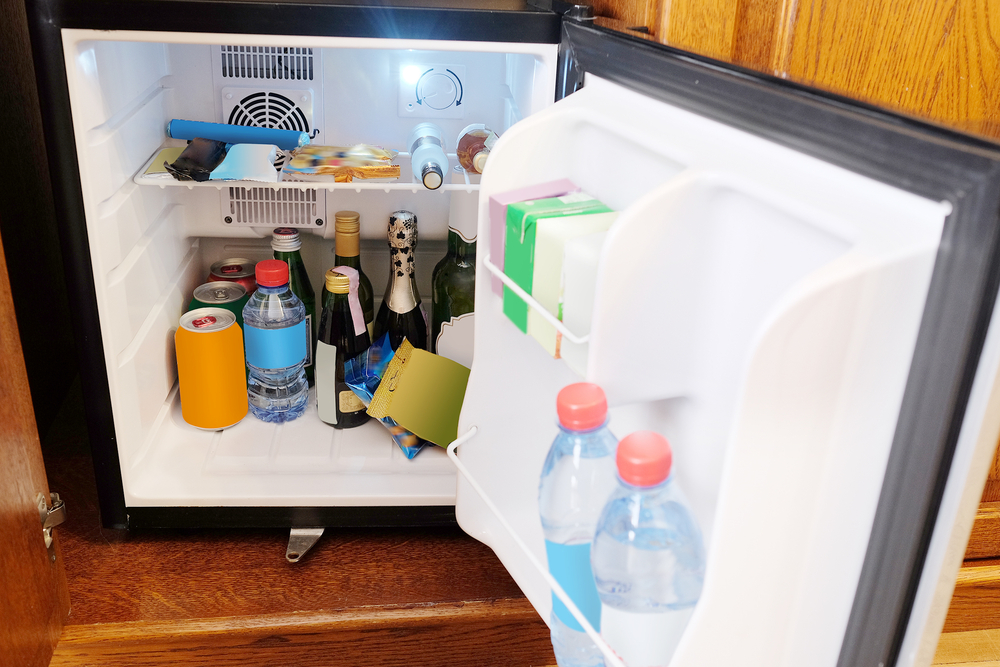When it comes to kitchen appliances, every household seeks a balance between convenience and cost-efficiency. Mini fridges, often celebrated for their compact size and convenience, are a common feature in dorm rooms, offices, and even bedrooms. But amidst their growing popularity, one critical question arises: Does a mini fridge use a lot of electricity? At TheKitchenApplianceDad.com, we’re diving deep into the energy consumption of mini fridges to bring you all the answers.
Mini fridges are generally smaller than their full-sized counterparts, which leads many to assume they consume less power. However, the answer isn’t as straightforward as one might think. Several factors influence the energy usage of a mini fridge:
The size of the mini fridge significantly affects its energy consumption. Naturally, larger mini fridges will use more electricity than smaller ones. Mini fridges can range in size from as small as 1.7 cubic feet to as large as 4.5 cubic feet.
The energy efficiency of a mini fridge is crucial in determining how much electricity it consumes. Models that are Energy Star certified are typically 20% more energy-efficient than models without this certification. You can check for an Energy Star label or look up the model’s energy usage in kilowatt-hours (kWh) on the Energy Star website.
The type of refrigerant a mini fridge uses can also impact its energy efficiency. Older models often use refrigerants that are less efficient and more harmful to the environment compared to the newer hydrofluorocarbons (HFCs) and hydrocarbons (HCs) that are being used in newer models.
Older mini fridges tend to be less energy-efficient than newer ones. Additionally, a mini fridge that’s not well maintained—such as having dirty coils or a malfunctioning thermostat—can use more electricity.

To put things into perspective, let’s compare the energy usage of mini fridges with standard refrigerators. While a typical full-sized refrigerator might use about 400-800 kWh annually, a mini fridge uses considerably less, generally around 200-300 kWh per year. However, when you consider the size ratio and utility, mini fridges are often less efficient per cubic foot than larger refrigerators.
If you’re looking to optimize the energy efficiency of your mini fridge, consider the following tips:
Keep your mini fridge away from heat sources like stoves, microwaves, and direct sunlight. Also, ensure there’s adequate space around it for air to circulate, which helps in efficient cooling.
Clean the coils of your mini fridge at least twice a year to ensure it operates efficiently. Also, check the door seals and fix any leaks to prevent cold air from escaping.
Set the temperature of your mini fridge to adequate levels. Keeping it too cold unnecessarily increases energy consumption. The FDA recommends keeping your refrigerator at or below 40°F.
If your mini fridge is old, consider replacing it with a newer, more energy-efficient model. This can significantly reduce your energy usage and, in turn, your electricity bills.
To give you a more concrete idea, consider two real-life mini fridge models and their energy consumption:
The difference in energy consumption can lead to noticeable differences in electricity costs over time, making the choice of model crucial for those concerned with energy efficiency.
Understanding whether a mini fridge uses a lot of electricity involves considering various factors. By choosing the right model and following energy-saving tips, you can enjoy the convenience of your mini fridge without incurring high energy costs. Remember, at TheKitchenApplianceDad.com, we’re always here to help you make informed decisions about your kitchen appliances.

